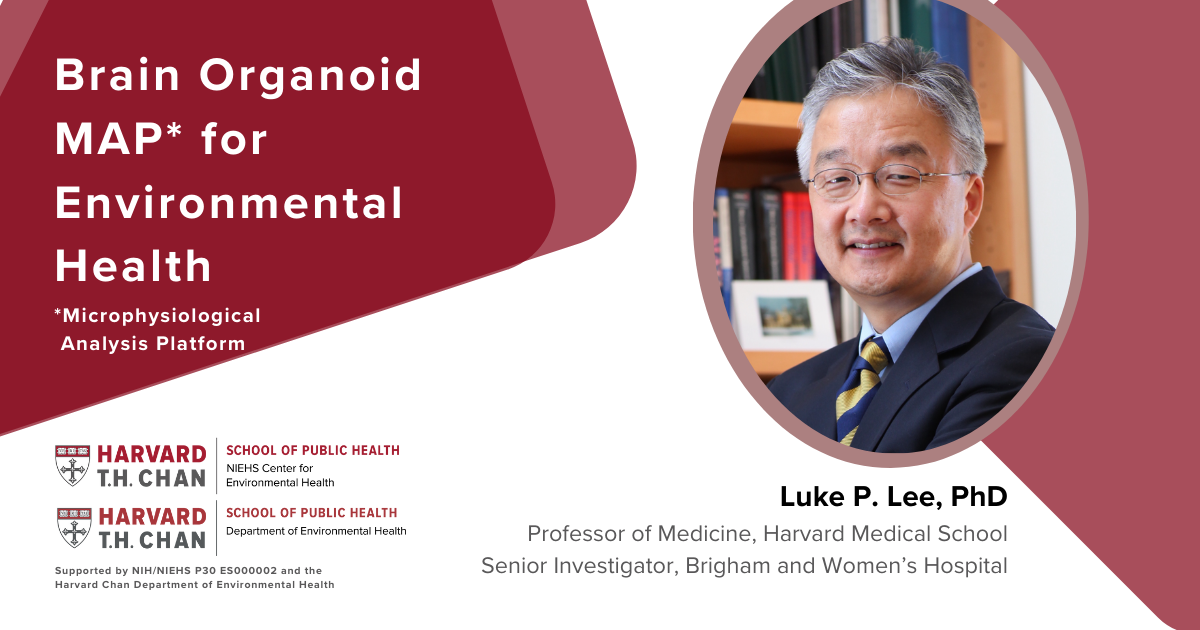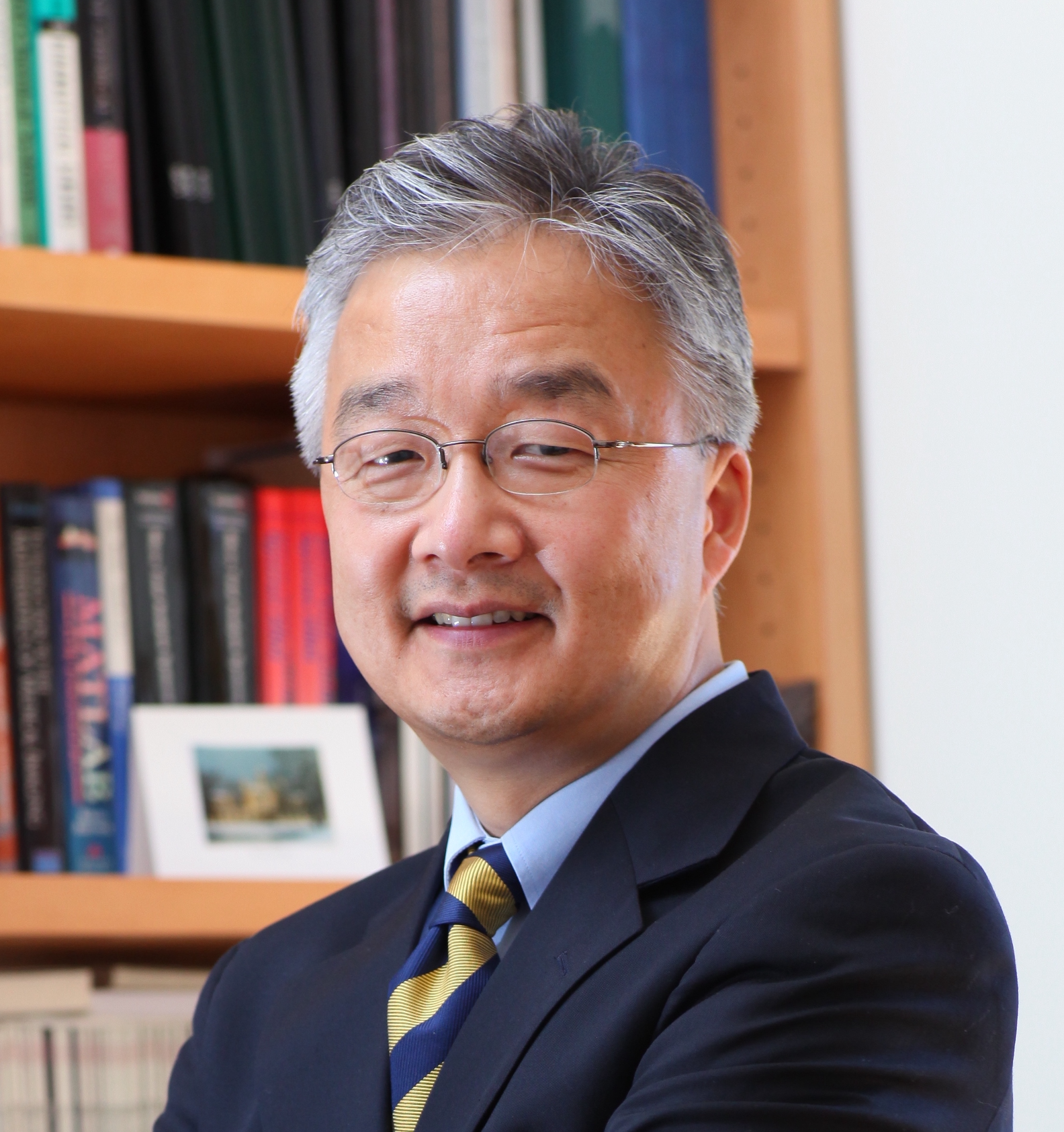
Brain Organoid MAP* for Environmental Health with Luke Lee, PhD

Please join the Harvard Chan NIEHS Center for Environmental Health and the Department of Environmental Health for a talk by Luke P. Lee, PhD, of Harvard Medical School and Brigham and Women’s Hospital. Dr. Lee will discuss “Brain Organoid MAP* for Environmental Health.”
This event will be held in person (HSPH Bldg. 1, 1302) and via Zoom. Register here
Abstract
We are developing a Brain Organoid Microphysiological Analysis Platform (MAP)* designed to facilitate the examination of the effects of environmental factors on brain development and functionality. This platform will significantly assess neurodevelopmental toxicity and deepen our understanding of gene-environment interactions. The brain MAP replicates microenvironments to create uniform organoids that indicate Parkinson’s disease from induced pluripotent stem cells (iPSCs). We also monitor brainwave dynamics and collect extracellular vesicles (EVs) to explore molecular expression dynamics and their correlation with electrophysiological expressions. This establishes a leading platform for precision neurology using genomics and AI. This brain MAP allows non-invasive monitoring of midbrain organoids, improving our understanding of PD affected by toxins and environment. Long-term EEG monitoring reveals early electrophysiological evolution in midbrain development from brief bursts to complex activities. Our MAP also models neurotoxin-induced Parkinsonism, replicates midbrain circuitry, and shows PD-like changes in beta oscillation. This model enhances insights into neurophysiology, neuropathogenesis, environmental impacts, and drug discovery for neurodegenerative diseases. The human brain organoid MAP enables observation of RNA and protein expressions via isolated EVs and mitochondrial Quantum Biological Electron Transfer (QBET) modulations for noninvasive therapies while capturing brainwave signals. It can serve as a valuable tool for studying the environmental effects on PD by addressing PD pathology and examining the impact of toxins on brain development and disease.
About the speaker
Luke P. Lee is a Professor of Medicine at Harvard Medical School and a senior investigator at Brigham and Women’s Hospital. He earned his B.A. and Ph.D. from UC Berkeley. After more than a decade in the industry, he joined the faculty at UC Berkeley in 1999 and later became the Arnold and Barbara Silverman Distinguished Professor and the Lester John and Lynne Dewar Lloyd Distinguished Professor at Berkeley. Additionally, he was the Chair Professor in Systems Nanobiology at ETH Zürich. He also served as the Tan Chin Tuan Centennial Professor and Associate President for International Research and Innovation at the National University of Singapore. He founded the Institute for Quantum Biophysics at Sungkyunkwan University in Korea. He is recognized as a Fellow of the Royal Society of Chemistry and the American Institute of Medical and Biological Engineering. He has received multiple awards for his contributions to the convergence of biology, physics, and engineering, which have advanced translational medicine. These accolades include the IEEE William J. Morlock Award, NSF Career Award, Fulbright Scholar Award, and the HoAm Prize. He has published over 350 peer-reviewed articles and has filed 60 international patents.
Speaker Information
Organizers
ⓘ Harvard Chan School hosts a diverse array of speakers, invited to share both scholarly research and personal perspectives. They do not speak for the School, and hosting them does not imply endorsement of their views, organizations, or employers.
